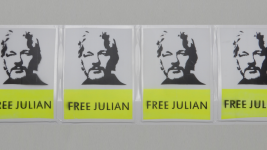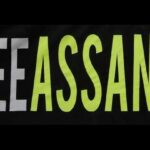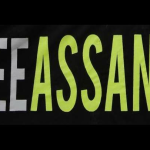Albanese’s Backdoor Diplomacy Could Spell Assange’s Death Knell

Following UK home secretary Priti Patel providing her government’s approval to the extradition of Julian Assange to the US on 17 June, the authorities at London’s Belmarsh prison stripped the Australian journalist naked and stuck him in isolation to prevent any suicide attempt.
Despite highlighting the barbarity of treatment the WikiLeaks founder is currently being subjected to during his three-year-long remanding at the notorious maximum-security correctional facility, it also emphasises the major mental health concerns that extradition to the United States gives rise to.
This should highlight that in undertaking the quiet diplomacy regarding Assange’s plight that prime minister Anthony Albanese has confirmed is currently underway, should be focused on his not being sent to the States at all costs, as therein lies the risk to the journalist’s life.
But government documents obtained via freedom of information by human rights lawyer Kellie Tranter suggest that the Labor government is negotiating on Assange in a manner that includes contemplation of his going before the US courts, prior to being repatriated to serve his time.
Writing in Declassified Australia on 16 July, Tranter explains that notes containing talking points for federal attorney general Mark Dreyfus focus on the mechanisms available to this nation and to Assange himself in seeking his transference to Australia post-conviction in the US.
So, while whether Albanese has called on Washington to drop the case altogether is unclear from the obtained files, what is certain is the government is pondering its options if extradition happens, and it’s this eventuation, involving pretrial incarceration in the US, that may prove lethal to Julian.
A death sentence awaits
UK District Court Judge Vanessa Baraitser ruled against extradition on 4 January last year, based on a psychiatric assessment that found Assange poses a serious suicide risk if he is sent to the United States to face trial on an 18 count indictment carrying a collective maximum penality of 175 years.
In making this decision, the likelihood of Assange being subjected to special administrative measures (SAMs) in US detention pretrial was a serious consideration. The SAMs regime involves enhanced isolation and other extreme measures, usually reserved for terror suspects.
Baraitser further pointed to the possibility that Assange would be placed in the ADX Florence facility, which is a supermax prison in the Colorado Desert that specialise in SAMs. And following the delivering of her decision, US files confirming this to be the case were cited publicly.
The UK High Court went on to overturn the decision to refuse extradition last December, primarily based on four assurances the White House provided on appeal, in relation to the treatment Assange would receive in its prison system.
The assurances state that Washington would approve a request from Assange to serve any resulting prison time in Australia, along with providing “appropriate clinical and psychological treatment” whilst it’s detaining him.
The document also pledges the US won’t place the Townsville-born man under special administrative measures or in ADX Florence, “unless, after entry of the assurances, he commits any future act which renders him liable to such conditions of detention”.
Yet, Julian’s supporters question whether the White House, which contemplated kidnapping the journalist, flagged his assassination, has suspect evidence in its official indictment and illegally spied upon the Australian whilst he was seeking refuge at the Ecuadorian Embassy, can be trusted.
An Australian son
Right now, Assange’s legal team is preparing for one final appeal to the UK High Court, while key support group Doctors for Assange has warned he may die in detention, and veteran journalist John Pilger has underscored that he and Julian’s family believe extradition may mark the end.
On taking office, the Albanese government has set about establishing itself as a party that upholds human rights and has an ear to the people.
Dreyfus has dropped the Collaery prosecution for blowing the whistle on Australian government corruption.
So, to allow the extradition of Julian without providing a solid attempt to prevent it, would be a stain the new government may find hard to wash away.







